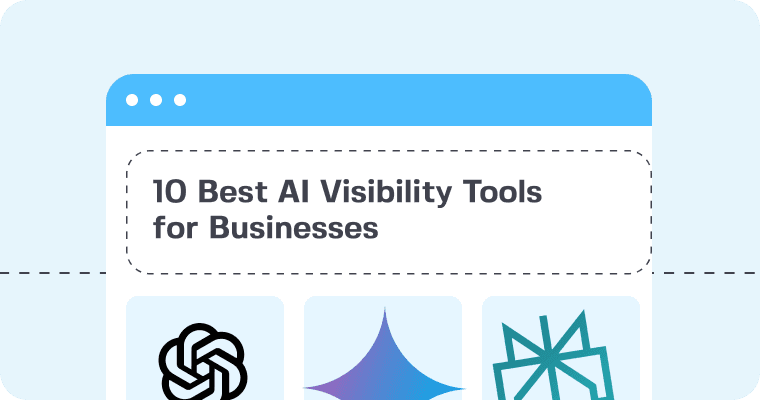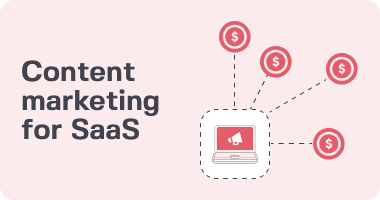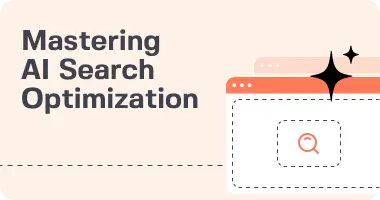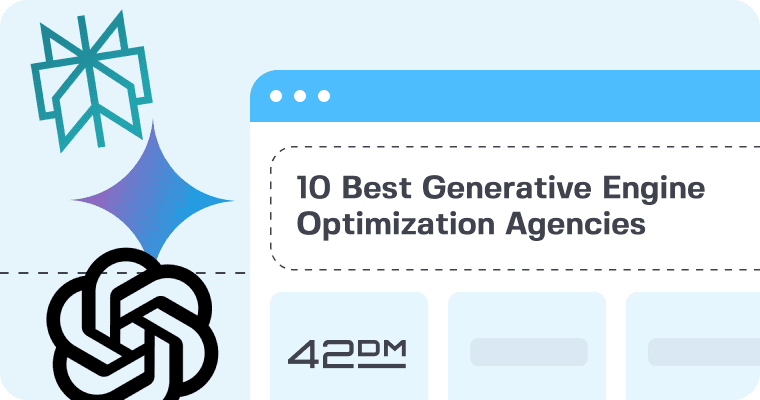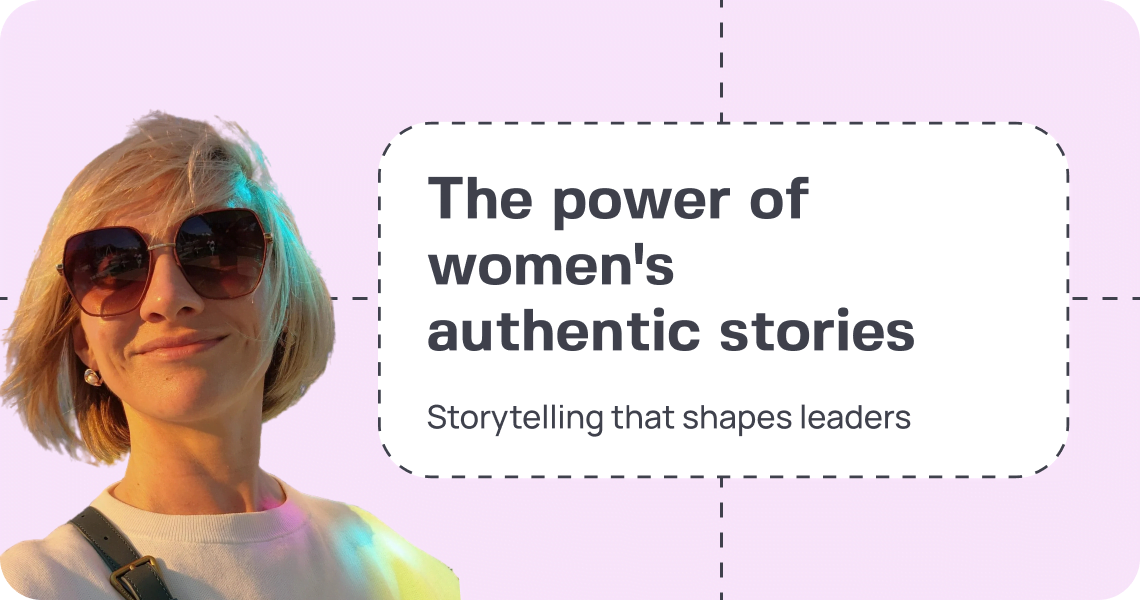As generative engines like ChatGPT, Google AI Overviews, and Perplexity move center stage, traditional SEO tactics are no longer enough. Brands that want to stay visible must now optimize for AI-generated answers, not just SERP rankings.
This FAQ was designed to guide forward-thinking marketers, SEO experts, and tech leaders through the evolving landscape of Search AI Optimization (SAIO) and Generative Engine Optimization (GEO). From core concepts and visibility factors to tools, agencies, and success metrics, we break down everything you need to start ranking in the age of AI-driven discovery.
Core Concepts & Definitions
What is generative engine optimization?
Generative Engine Optimization (GEO) is the practice of optimizing digital content to appear in the answers generated by AI-powered search tools, such as ChatGPT, Perplexity, or Google’s AI Overviews. Unlike traditional SEO, which focuses on keyword rankings in standard search engine results pages (SERPs), GEO aims to increase brand visibility and credibility within AI-generated summaries, citations, and direct answers. This approach requires a strong emphasis on authority, clarity, structured data, and brand consistency across content sources.
Key components of GEO include:
- Optimizing for citation likelihood in generative answers
- Structuring content for AI comprehension (e.g., clear claims, expert attribution)
- Leveraging schema markup and E-E-A-T principles
- Creating content aligned with AI prompt patterns and topical authority
What is AI search?
AI search refers to search engines or tools that use artificial intelligence—especially large language models (LLMs)—to understand, interpret, and respond to queries in a more conversational or contextual way. Rather than returning a list of blue links, AI search often provides synthesized answers, direct responses, and dynamically generated citations. This shift moves users from keyword-based retrieval to a more semantic, intent-focused experience where the quality and relevance of information matter more than keyword frequency.
What is semantic search in AI?
Semantic search in AI refers to the ability of AI-powered search engines to understand the meaning and context behind a user’s query, rather than relying solely on exact keyword matches. By leveraging natural language processing (NLP) and machine learning, semantic search enables systems to interpret synonyms, user intent, and topic relationships, delivering more relevant and nuanced results. This approach enhances user experience by surfacing high-quality, contextually appropriate content—even when queries are vague or conversational.
What is LLM SEO?
LLM SEO is a specialized branch of search optimization that focuses on improving visibility within content generated or influenced by Large Language Models (LLMs), such as GPT-4, Claude, or Gemini. The goal is to ensure that your content or brand appears in LLM outputs—whether that’s through citations, summaries, or featured mentions—when users interact with AI tools. This often involves creating authoritative, well-structured content, optimizing for knowledge graphs and trusted sources, and understanding how LLMs select and surface information.
What are AI search engines?
AI search engines are platforms that integrate artificial intelligence—particularly large language models and machine learning algorithms—to enhance the search process. Unlike traditional search engines that return indexed pages based on keyword relevance, AI search engines aim to generate answers, summarize content, or synthesize information from multiple sources. Examples include Perplexity, ChatGPT with browsing enabled, and Google’s AI Overviews. These tools are reshaping the SEO landscape by prioritizing content quality, clarity, and contextual accuracy.
What are the key differences between traditional SEO and AI search optimization?
Traditional SEO focuses on optimizing web pages to rank in search engine results based on keywords, backlinks, and technical factors. AI search optimization, by contrast, centers around tailoring content for AI-generated answers, which are based on trustworthiness, clarity, and semantic relevance. Instead of just ranking pages, the goal is to be cited, summarized, or surfaced directly by AI tools. This shift demands a different content strategy—one rooted in authority, structured data, and alignment with AI comprehension patterns.
Key differences include:
- Goal: Ranking in SERPs (traditional SEO) vs. appearing in AI-generated answers (AI SEO)
- Tactics: Keywords & backlinks vs. semantic clarity & factual consistency
- Evaluation: Crawled & indexed pages vs. trusted sources and LLM training data
- Content Style: Keyword-focused pages vs. structured, E-E-A-T-rich explanations
- Measurement: Google Analytics, Search Console vs. tools tracking AI citations and summaries
Ranking in AI Search Platforms
How to appear in AI search results?
To appear in AI search results—such as those delivered by ChatGPT, Perplexity, or Google’s AI Overviews—your content must be discoverable, trustworthy, and contextually relevant to the AI’s query interpretation. Unlike traditional SEO, where ranking is driven by algorithmic page indexing, generative AI models pull from a mix of live web data, structured sources, and pre-trained knowledge to construct their responses. Appearing in these answers often means being cited as a reliable source or producing content that aligns with the model’s content selection patterns.
Key strategies to improve AI visibility include:
- Ensuring your brand is cited on high-authority, trustworthy domains
- Structuring your content with clear claims, expert attribution, and semantic clarity
- Using schema markup and adhering to E-E-A-T guidelines
- Publishing data-backed insights and niche expertise frequently
- Getting mentioned in community discussions, Q&A sites, or editorial content
How to rank in ChatGPT?
Ranking in ChatGPT means having your content included in responses either directly or indirectly through citations, links, or paraphrased knowledge. While ChatGPT often draws from its training data, the version with browsing or plugin access (such as ChatGPT with Bing or custom tools) can cite live web content. To rank here, focus on getting your brand or content mentioned in reputable sources that ChatGPT trusts, such as Wikipedia, major news outlets, or niche authorities.
How to rank in Perplexity?
Perplexity uses real-time web crawling and citation-based responses, meaning it frequently links to live sources. Ranking in Perplexity depends heavily on your content being clear, structured, and hosted on high-authority domains. It prioritizes sources that directly answer the user query, so creating precise, well-organized pages on niche topics significantly boosts your visibility.
What factors influence brand visibility in generative AI search results?
Brand visibility in generative AI search is driven by how AI models perceive and select sources to include in their generated responses. This includes factors like perceived authority, frequency of brand mentions, contextual relevance, and the clarity of information provided. Unlike traditional ranking factors such as backlinks or page load speed, AI models weigh qualitative indicators such as language precision, domain trust, and semantic alignment with the query.
Major visibility factors include:
- Citation frequency across multiple trusted sources
- Topical authority on a niche or domain
- Content clarity and structured formatting
- E-E-A-T signals (experience, expertise, authoritativeness, trustworthiness)
- Presence on reputable third-party websites (e.g. media, forums, wikis)
- Schema usage to guide content interpretation
How to analyze search rankings in Perplexity AI?
Analyzing rankings in Perplexity AI involves monitoring which sources it cites for specific queries and tracking how often your brand or domain appears in those responses. Because Perplexity includes visible citations, you can reverse-engineer its behavior by entering key questions and observing which sites are consistently referenced. Tools for tracking citation frequency and generative visibility are emerging but still limited, so much of this analysis is manual or based on qualitative monitoring.
How does an SEO expert help you rank in AI search results?
An SEO expert specializing in AI search helps position your brand to be selected by language models and AI-powered tools during content generation. This involves auditing your digital footprint for authority signals, structuring content to match AI interpretation patterns, and ensuring visibility across trusted third-party platforms. They may also help you shape a content strategy that speaks directly to how LLMs “think,” including adjusting tone, format, and semantic richness for optimal AI comprehension.
Content Optimization for AI Search
How to optimize for AI search?
Optimizing for AI search involves tailoring your content so that large language models (LLMs) like ChatGPT, Perplexity, and Gemini can easily understand, trust, and surface it in their responses. These AI models don’t rely solely on traditional SEO signals like keyword density or backlinks—instead, they look for semantic clarity, factual consistency, structured data, and trusted sources. The objective is to create content that aligns with how AI interprets and selects information for citation or summarization in generative answers.
Key principles for optimizing for AI search:
- Semantic clarity: Write in a clear, natural tone using language that matches user intent. Avoid fluff and ambiguity—AI models prefer direct, well-structured explanations.
- Answer-first formatting: Place key takeaways or direct answers early in your content (e.g., in the first paragraph or as H2s and H3s).
- E-E-A-T alignment: Demonstrate Experience, Expertise, Authoritativeness, and Trustworthiness through author bios, source citations, and factual accuracy.
- Structured content: Use headings, bullet points, tables, and short paragraphs to make information easily digestible.
- Schema markup: Implement structured data (e.g., FAQ, Article, Product) to help AI and search crawlers categorize your content correctly.
- Third-party authority: Get your brand or content cited on trusted domains like Wikipedia, government sites, media publications, or industry blogs—AI models often pull from these.
- Consistency across the web: Ensure your brand’s identity, product details, and messaging are uniform across websites and platforms to reinforce trust signals.
- Freshness and relevance: Keep your content updated, as many AI search platforms prioritize recency and real-time information.
How can I optimize my content for AI search algorithms?
To optimize content for AI search algorithms, focus on providing concise, accurate answers to specific user queries while demonstrating clear subject-matter expertise. Use natural language, structured headings, and context-rich explanations that AI can understand and repurpose. Fact-checking, source attribution, and clear formatting are key to increasing the likelihood of being referenced or summarized by AI.
How to optimize website for AI search engines?
Website-level optimization means building an overall structure that AI systems can trust. This includes maintaining a clear sitemap, consistent internal linking, optimized page speed, and a clean semantic structure (e.g. using H1–H4 headers logically). Your domain’s authority, trustworthiness, and crawlability across devices also influence how AI search platforms perceive and rank your content.
How can I optimize my website for AI search results using E-E-A-T principles?
E-E-A-T (Experience, Expertise, Authoritativeness, Trustworthiness) is central to AI visibility. Demonstrate experience through case studies or first-hand narratives, expertise through credentials or original research, authority by securing backlinks or citations from credible sites, and trustworthiness via transparent policies and verified data sources. Use clear author bios, publish on reputable domains, and keep all information accurate and up to date.
What’s the best way to optimize product descriptions for AI search engines?
For product descriptions to rank in AI search, avoid generic or overly promotional language. Instead, focus on clear specifications, benefits, and use cases using natural language. Including structured data like [Product] schema helps AI systems categorize and extract the right information. The more precise, relevant, and well-formatted the description, the better it performs in AI-generated results.
How to optimize press releases for AI search engine crawlers?
AI crawlers favor press releases that clearly communicate key details (who, what, when, where, why) in structured formats. Use concise, headline-driven sections with clearly attributed quotes, data points, and company background. Include schema markup such as [NewsArticle] or [Organization], and distribute press releases through reputable PR platforms to improve citation potential.
What are the best practices for optimizing content for AI search engines?
Best practices include writing in a clear, factual tone, breaking content into logical sections, and answering specific questions directly. Structured data, trusted outbound links, E-E-A-T alignment, and content hosted on credible domains all increase visibility. Keeping your content fresh and rich with original insights also helps distinguish it from AI training data.
How to integrate schema markup for AI search engines?
Schema markup provides machine-readable context that helps AI tools understand and categorize your content accurately. By applying structured data formats such as [Article], [FAQPage], [Product], or [Person], you make it easier for AI models to extract relevant information and trust your content’s source. Proper implementation not only boosts visibility in AI-generated responses but also enhances traditional SEO performance.
How to create content that AI tools prefer for brand citations?
AI models cite sources they deem trustworthy, clear, and directly relevant. To increase your chances of being cited, produce original insights, include clearly labeled data or quotes, and publish on domains with strong reputations. Cited content is typically fact-based, specific, and easy to parse—so avoid overly complex phrasing, thin content, or excessive promotion.
Tips to increase brand citation potential:
- Include unique data, research, or expert commentary
- Use proper formatting: headings, bullet points, and tables
- Publish on high-authority platforms or guest blogs
- Reference your brand naturally and consistently across content
- Ensure clear attribution (authors, sources, organizations)
How to implement AI optimization strategies for better ranking in AI-generated search answers?
Implementing AI-specific optimization involves aligning your content strategy with how language models process, evaluate, and surface information. This means combining technical SEO, semantic structuring, content clarity, and citation strategy under one framework. Use AI-driven tools to identify gaps, refine formatting, and ensure that every piece of content serves both human readers and AI interpreters.
Effective AI optimization strategies include:
- Mapping content to question-based queries and intent
- Structuring information into digestible chunks for easy AI parsing
- Using schema and internal links to signal content relationships
- Regularly auditing how your content appears (or doesn’t) in AI responses
- Contributing to authoritative external sources that AI tools trust
Google AI Overviews & Generative Search Impact
What AI Overviews means for SEO?
Google’s AI Overviews represent a major shift in how users receive information, moving from clickable search results to synthesized, AI-generated answers at the top of the search engine results page (SERP). For SEO professionals, this means that ranking is no longer just about being position #1 in blue links—it’s about being referenced or summarized in the AI-generated overview itself. These overviews often pull information from multiple sources, blending them into one cohesive answer, which changes both the visibility model and user behavior.
What this means for SEO strategy:
- Less traffic from organic blue links: Users may get answers directly from the overview without clicking through to sites.
- Higher value on credibility: Google’s AI Overviews prioritize trustworthy, authoritative sources, making E-E-A-T signals more important than ever.
- Increased emphasis on content clarity: Your content needs to be easily parsed and accurately summarized by AI to be included.
- Schema and structure matter more: Structured data helps AI interpret your content correctly and improves inclusion in overviews.
- Visibility ≠ clicks: Brand visibility in AI Overviews may raise awareness even if it doesn’t always drive direct traffic.
How is Google AI Overviews going to affect SEO?
Google AI Overviews will affect SEO by introducing a new layer of competition—where content is not just ranked but summarized and synthesized. Websites that may not rank #1 can still be referenced if their content is factually strong and clearly written. This means traditional SEO strategies must evolve to include semantic optimization, content quality, and AI-targeted structuring. It also requires deeper monitoring of how your brand appears in AI outputs, even when no links are involved.
How to optimise my SEO for Google’s AI Overviews?
To optimize for inclusion in Google’s AI Overviews, prioritize semantic precision, source trustworthiness, and answer-focused writing. AI Overviews tend to favor concise, well-cited, and context-rich content from sites with high authority. Structuring content to answer likely questions directly (e.g., using FAQ-style sections) and supporting claims with links to primary sources can significantly improve your chances of being referenced.
Optimization tactics include:
- Use clear H2/H3 headers that match user queries
- Format content using FAQ, How-to, and Summary sections
- Support claims with reputable sources or studies
- Add schema markup (especially FAQPage, HowTo, Article)
- Ensure content freshness and regularly update high-performing pages
- Maintain author bios and about pages that establish expertise
How to show up in AI Overviews SEO?
Showing up in Google’s AI Overviews depends on whether your content is deemed reliable, relevant, and easy to summarize. This requires publishing high-quality, accurate content that directly answers user intent. You don’t need to be the #1 ranking site, but your domain should have enough authority and semantic clarity to be selected by Google’s generative models. Optimize with a blend of traditional SEO fundamentals and AI-aware practices like consistent E-E-A-T, structured formatting, and niche topical authority.
Brand Citations & Mentions in AI Responses
How to increase citations in AI-generated responses?
To increase brand citations in AI-generated responses, you must position your content and website as credible, authoritative, and frequently referenced by other trustworthy sources. Generative AI platforms like ChatGPT, Perplexity, and Google’s AI Overviews tend to favor content that appears in high-authority domains, uses structured information, and offers clear, verifiable facts. Citation-worthy content is typically original, unambiguous, and aligned with user intent.
Tactics to boost AI citations include:
- Publish on high-authority third-party platforms (e.g., guest blogs, media, wikis)
- Contribute unique insights or original research that’s easy to reference
- Use clear headings, bullet points, and short summaries for better extractability
- Add expert quotes, data points, and first-party evidence
- Ensure proper attribution (author, organization, credentials)
- Build topical authority by deeply covering niche subjects
- Encourage backlinks from trusted sites, which signals importance to AI models
- Maintain brand consistency across the web (name, logo, info structure)
What strategies increase citations in AI-generated answers?
Effective citation strategies focus on earning trust from both AI and human sources. The most cited content tends to be fact-driven, educational, and semantically clear. Strategies include publishing FAQ-style content, gaining inclusion in trusted aggregators or databases, and making your content easily quotable. Being cited by Wikipedia, industry-specific glossaries, or expert directories also increases your visibility in generative responses.
How to fix broken or missing brand citations in AI platforms?
Fixing broken or missing citations involves auditing where and how your brand appears across the web. Start by identifying mentions that lack proper attribution or links, then update those sources or request edits. You can also strengthen your brand’s identity through structured markup, consistent naming, and verified profiles on platforms like Google Business, LinkedIn, and schema.org. If you’re missing entirely from AI responses, evaluate whether your content is indexable, credible, and cited by others.
How to improve local business citations in AI-generated responses?
Local businesses can improve their chances of being cited in AI responses by maintaining accurate, consistent listings across local directories, review platforms, and mapping tools. Ensure that your NAP (Name, Address, Phone Number) information is identical across all platforms. Having positive, detailed reviews, as well as publishing location-specific content, also increases trust signals. Using LocalBusiness schema and getting featured in local publications can boost your local visibility in generative search outputs.
What are the best tools for tracking citation data to improve AI search rankings?
While the AI SEO tooling space is still emerging, some tools can help track brand citations and mentions:
- Perplexity AI (manually check citations in answers)
- ChatGPT with browsing (observe sources it references)
- Brand24 or Mention (monitor brand mentions across the web)
- Ahrefs / SEMrush (track backlinks and referring domains)
- Google Alerts (detect new mentions of your brand or content)
- Oncrawl / Screaming Frog (audit structured data and crawlability)
How to track competitor rankings in AI search results effectively?
Tracking competitor visibility in AI search requires a blend of manual research and automated monitoring. You can start by running typical user queries in platforms like Perplexity or ChatGPT and documenting whose content is being cited. Tools like ContentKing, SEOClarity, or custom-built scripts using browser automation (e.g., Puppeteer) can help scale this effort. Compare citation sources, types of content cited, and domain structures to identify gaps or opportunities.
Tools, Agencies, and Services
Which AI platform is ideal for search optimization?
The ideal AI platform for search optimization depends on your goals—whether you’re optimizing for visibility in generative AI answers, enhancing content with AI tools, or analyzing brand presence across AI-powered search engines. Currently, platforms like Perplexity, ChatGPT (with browsing or plugins), and Google’s AI Overviews are leading the evolution of AI search experiences. For optimization, tools that offer real-time citation tracking, semantic analysis, and structured content scoring are particularly valuable.
Notable AI platforms for search optimization include:
- Perplexity AI: Ideal for monitoring citations and real-time visibility in generative responses
- ChatGPT (Plus, with browsing): Useful for observing how AI generates answers and which content it prefers
- Surfer SEO & Clearscope: Use AI to help structure semantically optimized content
- NeuronWriter & Frase: Help tailor content for LLM-friendly formatting and relevance
- Google Search Console + Schema Markup: Still critical to understand how your content is crawled, indexed, and evaluated
Who provides AI-driven paid search optimization?
AI-driven paid search optimization combines machine learning and automation to enhance PPC campaign performance, especially across platforms like Google Ads, Microsoft Ads, and increasingly, AI-integrated ad experiences (e.g., within ChatGPT plugins or Bing AI). Agencies and platforms offering these services use AI to analyze bid strategies, predict high-converting keywords, and dynamically adjust ad copy for better results.
Providers of AI-driven paid search optimization include:
- Skai (formerly Kenshoo): Offers AI-powered performance marketing across search and e-commerce
- Adzooma: Uses AI insights to optimize Google and Microsoft Ads
- WordStream by LOCALiQ: AI-assisted PPC management for SMBs
- Opteo: AI-driven Google Ads monitoring and suggestion platform
- Agency partners like 42DM, Wpromote, Brainlabs, and Tinuiti offer enterprise-grade AI-enhanced ad campaign strategies
What AI marketing agencies specialize in AI search optimization?
Top marketing agencies specializing in AI search optimization offer services designed to enhance visibility in generative search tools such as ChatGPT, Perplexity, Google AI Overviews, and other LLM-based platforms. These agencies integrate traditional SEO, content marketing, and technical strategies with LLM-specific expertise, including citation optimization, schema implementation, and AI prompt alignment. Here are some of them:
- 42DM. A full-cycle B2B marketing agency pioneering in SAIO/GEO. Its mission is to help tech and SaaS companies lead the AI search landscape—getting discovered and cited by tools like ChatGPT, Google AI Overviews, Gemini, and Perplexity.
- Victorious. An SEO agency offering Answer Engine Optimization (AEO) services to help businesses adapt to AI-driven search. As traditional SEO loses visibility to tools like ChatGPT and Google AI Overviews, Victorious focuses on making content discoverable by answer engines.
- Intero Digital. A full-service digital marketing agency offering Generative Engine Optimization (GEO) to improve brand visibility in AI-driven search environments.
Who are the top AI search marketing agencies?
The top 10 AI search marketing agencies are:
- 42DM: A B2B marketing leader specializing in SAIO and GEO, 42DM helps tech and SaaS companies dominate AI search visibility across tools like ChatGPT, Google AI Overviews, and Perplexity.
- Victorious: Focuses on Answer Engine Optimization (AEO) to future-proof content discoverability in AI-driven search platforms.
- Intero Digital: Offers full-service Generative Engine Optimization (GEO) to enhance brand presence in AI-powered search ecosystems.
- Coalition Technologies: Combines traditional SEO with LLM-aware strategies to boost visibility in conversational AI results.
- Marcel Digital: Specializes in structuring content for direct inclusion in AI-generated answers through AEO.
- Avenue Z: Helps brands track and improve AI-generated answer visibility with targeted AI Optimization (AIO) services.
- Single Grain: Integrates both SEO and GEO to increase rankings in traditional and generative AI search.
- Digital Brand Expressions (DBE): Built early SAIO strategies informed by firsthand testing of generative engines’ citation behavior.
- Gorilla Marketing: Focuses on AEO tactics that bypass keyword SEO to answer user queries directly in AI platforms.
- NoGood: Delivers end-to-end AEO supported by its proprietary Goodie platform for real-time AI search monitoring.
Which agency has the best LLM SEO services?
The best agency for LLM SEO (SEO designed for Large Language Models) is one that not only understands traditional SEO but also proactively adapts to the way LLMs consume, interpret, and cite information. This includes offering structured data audits, AI-friendliness checks, and content rewriting aligned with how ChatGPT or Perplexity presents answers.
Agencies known for strong LLM SEO capabilities include:
- 42DM – Offers AI audit frameworks and strategy for LLM citation potential
- Siege Media – Aligns deep content production with AI extractability
- Growfusely – Specialized in SaaS SEO, including content tuned for AI and voice search
- Market Brew – Uses simulated AI search engine modeling to test how content performs in AI-driven SERPs
Where can I find AI search optimization services with transparent reporting?
Transparency is critical in AI SEO, especially since much of your visibility may not show up in Google Analytics or Search Console. Agencies that offer transparent reporting typically provide manual citation tracking, AI appearance logs, and custom dashboards that monitor mentions in platforms like Perplexity, ChatGPT (via browser tools), or Bing Copilot.
Look for agencies or tools that offer:
- Reports showing citations in AI-generated answers
- Dashboards tracking brand mentions in Perplexity or ChatGPT plugins
- Detailed schema implementation logs and E-E-A-T scoring
- Clear KPIs (e.g., citation count, authority domain coverage, topic coverage)
- Regular content update plans based on generative AI shifts
Examples of transparency-focused providers:
- 42DM – Offers monthly SAIO performance reports including AI visibility snapshots
- Contentellect – Includes transparent reporting on structured data and citations
- MarketMuse – Shows semantic coverage gaps and AI-readability scores
Which companies are leading the market in LLM-driven SEO strategies?
Several SEO and MarTech companies are now specializing in LLM-aware SEO, tailoring strategies to help brands appear in generative AI responses. These agencies and platforms focus on semantic optimization, citation engineering, and E-E-A-T enhancement to improve visibility across ChatGPT, Perplexity, and Google’s AI Overviews.
Companies leading in LLM-driven SEO include:
- 42DM: A B2B digital marketing agency with a strong focus on AI-driven SEO for software companies
- Market Brew: Uses AI modeling to simulate how search engines interpret and rank content
- Surfer SEO: Offers semantic content optimization aligned with AI understanding
- Siege Media: Known for content strategies that align with both traditional and AI-based search
- GrowthBar: Combines SEO research with AI-generated content tools
- Sizzy: (Emerging player) Provides monitoring tools for brand visibility in generative search
Measurement, Strategy & ROI
What are the key metrics for measuring AI search optimization success?
AI search optimization success can’t be fully captured by traditional SEO metrics like keyword rankings or CTR alone. Instead, success depends on how frequently your content is referenced, cited, or summarized by AI tools like Perplexity, ChatGPT, or Google’s AI Overviews. This requires tracking brand mentions, citation frequency, and inclusion in AI-generated answers, as well as engagement outcomes.
Key metrics for AI search optimization include:
- Citation count in generative AI tools (e.g. how often Perplexity cites your content)
- Brand mentions in AI outputs (ChatGPT, Gemini, Bing Copilot, etc.)
- Visibility in Google AI Overviews (manual monitoring or third-party tracking tools)
- Domain authority and semantic relevance (via tools like Surfer, Clearscope)
- Topical coverage and content extractability (is your content structured for AI use?)
- Backlink quality from trusted, AI-cited sources
- Traffic and conversions attributed to AI-generated queries (via referral logs or attribution modeling)
- Share of voice in niche queries answered by AI tools
How do I track my visibility in AI search?
Tracking AI search visibility involves manually or programmatically analyzing how and where AI platforms mention or cite your brand. Since tools like ChatGPT and Perplexity do not yet offer native analytics dashboards, brands must adopt a hybrid approach that combines manual query testing, browser-based monitoring, and AI-focused SEO tools.
Ways to track visibility:
- Run common user queries in Perplexity and analyze citation patterns
- Use ChatGPT with browsing or Bing Copilot to test how your brand appears in responses
- Set up Google Alerts for your brand or article titles to monitor citations
- Log mentions in AI-generated summaries over time (spreadsheet or custom dashboard)
- Use tools like Brand24, Mention, or BuzzSumo to track brand mentions that may influence AI models
- Monitor traffic or leads coming from zero-click queries or branded impressions in AI results
How to generate ROI reports from AI search optimization efforts?
To report on ROI from AI search optimization, align generative search activities with business outcomes such as brand visibility, lead generation, or conversions. Since AI visibility doesn’t always result in direct traffic (due to zero-click answers), you may need to apply multi-touch attribution models or brand lift studies to assess impact.
ROI reporting components may include:
- Citation tracking logs with before/after visibility trends
- Engagement metrics on pages cited or surfaced in AI responses
- Referral sources and branded search uplift following citation exposure
- Lead attribution from users referencing AI tools in discovery paths
- Content performance (e.g., did an AI-optimized guide drive more demo signups?)
- Cost of content/strategy vs. business outcomes (cost-per-citation or cost-per-qualified-lead from AI-driven channels)
How to analyze competitor strategies in generative AI search optimization?
Analyzing competitor strategies involves tracking how often and where their content is cited or referenced in AI-generated responses. This includes studying which types of content perform best, which domains are cited, and what formatting or messaging patterns they use. Reverse-engineering successful citations can help uncover their AI-specific positioning tactics.
Steps to analyze competitors:
- Search key industry questions in Perplexity or ChatGPT and note which competitors are cited
- Analyze their content structure—are they using FAQs, stats, expert quotes?
- Check their schema usage and domain authority
- Track backlinks and mentions on authoritative third-party sites
- Study their E-E-A-T signals (bios, credentials, external validation)
- Monitor changes over time—e.g., how often they appear in overviews vs. your brand
What are the trends in AI search optimization that I should be aware of for my marketing strategy?
AI search is rapidly evolving, with new tools, ranking mechanisms, and user behaviors emerging. Marketers must track trends related to how LLMs evaluate content, the shift toward zero-click answers, and the growing role of schema, authority, and source reliability.
Key trends to monitor include:
- Rise of zero-click, AI-generated summaries that bypass traditional SERPs
- Increasing importance of structured data and semantic markup
- Growing value of original research and primary data in citations
- Expansion of AI search integrations into everyday tools (e.g., browser copilots, email assistants)
- Emergence of citation engineering as a core content strategy
- AI platforms becoming gatekeepers of trust—especially for health, finance, and technical content
- Tools like Perplexity Pro and ChatGPT plugins offering paid visibility opportunities
What common mistakes ruin AI search optimization efforts?
Many brands fail in AI search because they treat it like traditional SEO or underestimate how language models select content. Common pitfalls include over-optimization for keywords, neglecting semantic structure, or failing to build offsite authority. Others overlook the need for clarity and extractability, which makes their content hard for AI models to summarize or cite.
Common mistakes include:
- Writing content that’s too dense or jargon-heavy
- Ignoring E-E-A-T and author attribution
- Failing to use schema markup or structured formatting
- Publishing content on low-authority or spammy domains
- Relying only on on-site SEO without external validation or third-party mentions
- Not tracking brand visibility in AI tools and assuming traditional SEO tools are enough
Final Thoughts
Generative AI is no longer a futuristic trend—it’s an active filter between your content and your audience. To stay ahead, brands must adapt their strategies to meet how AI systems source, evaluate, and present information.
Whether you’re optimizing blog content, press releases, or product pages, the path to visibility in AI search begins with clarity, structure, authority, and trust. The sooner you align your SEO playbook with the new rules of AI discoverability, the better positioned you’ll be to lead in this next search era.


